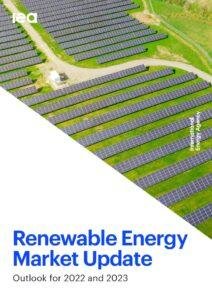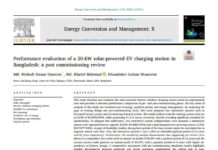 Renewable electricity capacity additions broke another record in 2021 and biofuels demand almost recovered to pre-Covid levels, despite the continuation of logistical challenges and increasing prices. However, the Russian Federation’s (hereafter, “Russia”) invasion of Ukraine is sending shock waves through energy and agriculture markets, resulting in an unprecedented global energy crisis. In many countries, governments are trying to shelter consumers from higher energy prices, reduce dependence on Russian supplies and are proposing policies to accelerate the transition to clean energy technologies.
Renewable electricity capacity additions broke another record in 2021 and biofuels demand almost recovered to pre-Covid levels, despite the continuation of logistical challenges and increasing prices. However, the Russian Federation’s (hereafter, “Russia”) invasion of Ukraine is sending shock waves through energy and agriculture markets, resulting in an unprecedented global energy crisis. In many countries, governments are trying to shelter consumers from higher energy prices, reduce dependence on Russian supplies and are proposing policies to accelerate the transition to clean energy technologies.
Renewable energy has great potential to reduce prices and dependence on fossil fuels in short and long term. Although costs for new solar PV and wind installations have increased, reversing a decade-long cost reduction trend, natural gas, oil and coal prices have risen much faster, therefore actually further improving the competitiveness of renewable electricity. However, how rapidly renewables can substitute fossil fuels hinges on several uncertainties and will depend on many factors. Will renewable electricity sources defy this global energy crisis and continue to expand quickly despite emerging political and macroeconomic challenges? At the same time, growth in biofuels demand faces significant headwinds from both lower transport demand growth and high biofuel prices. Will demand growth resume at historical rates?
Access Publication



![Currents of Change [Volume-3, Brief-02] Quarterly Brief of the Power & Energy Sector of Bangladesh](https://cpd-power-energy-study.com/wp-content/uploads/2026/02/Quarterly-Brief-of-Power-Energy-Sector-of-Bangladesh-3-cover-218x150.jpeg)



